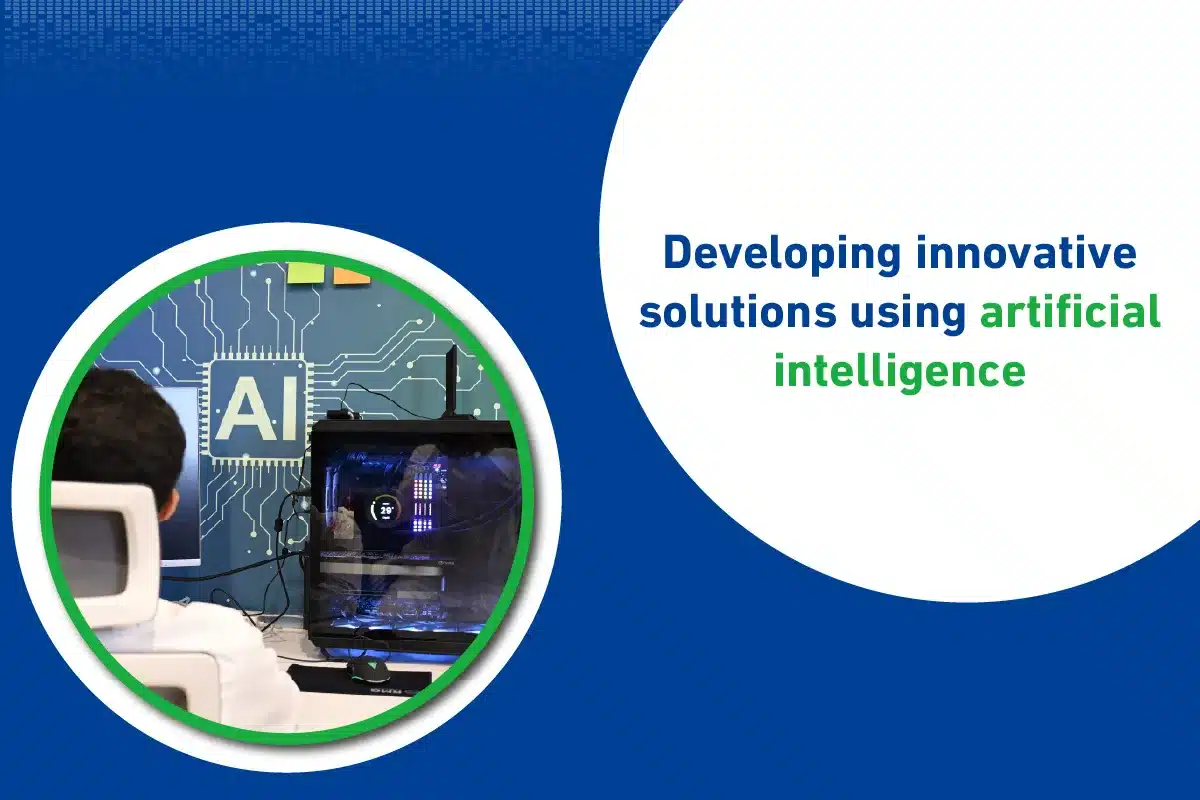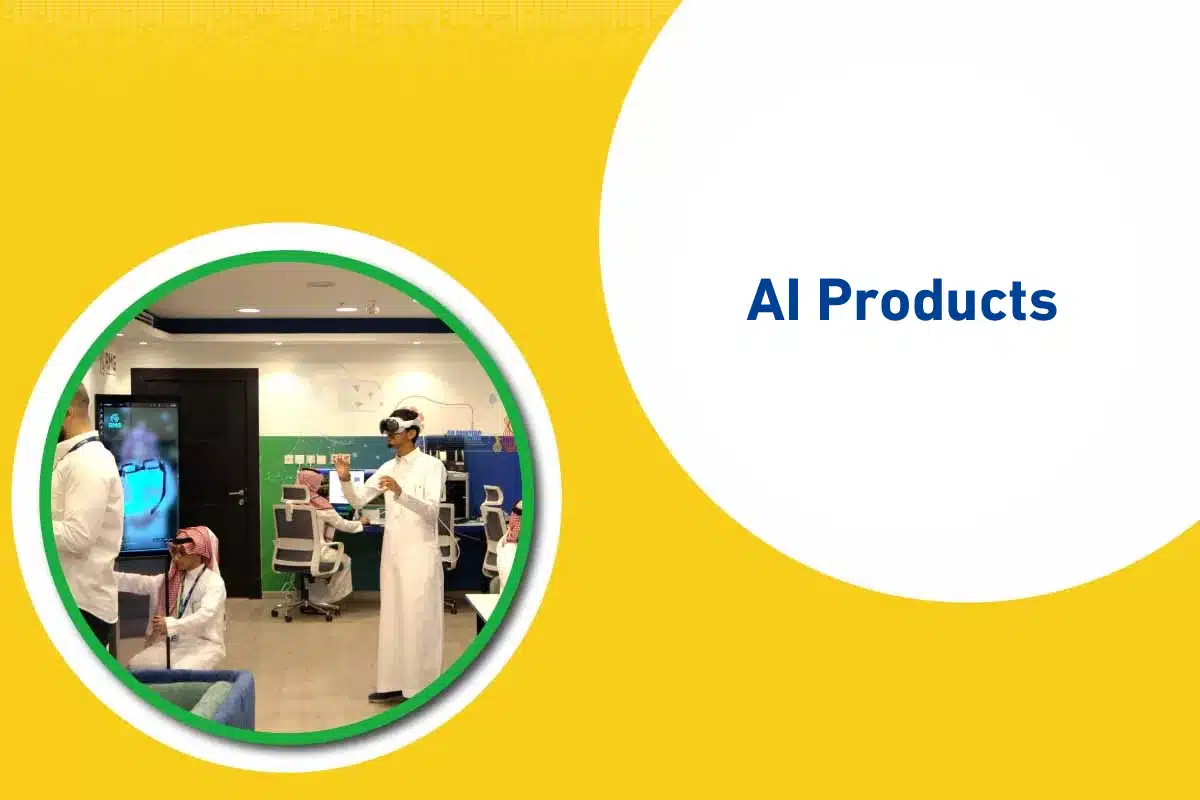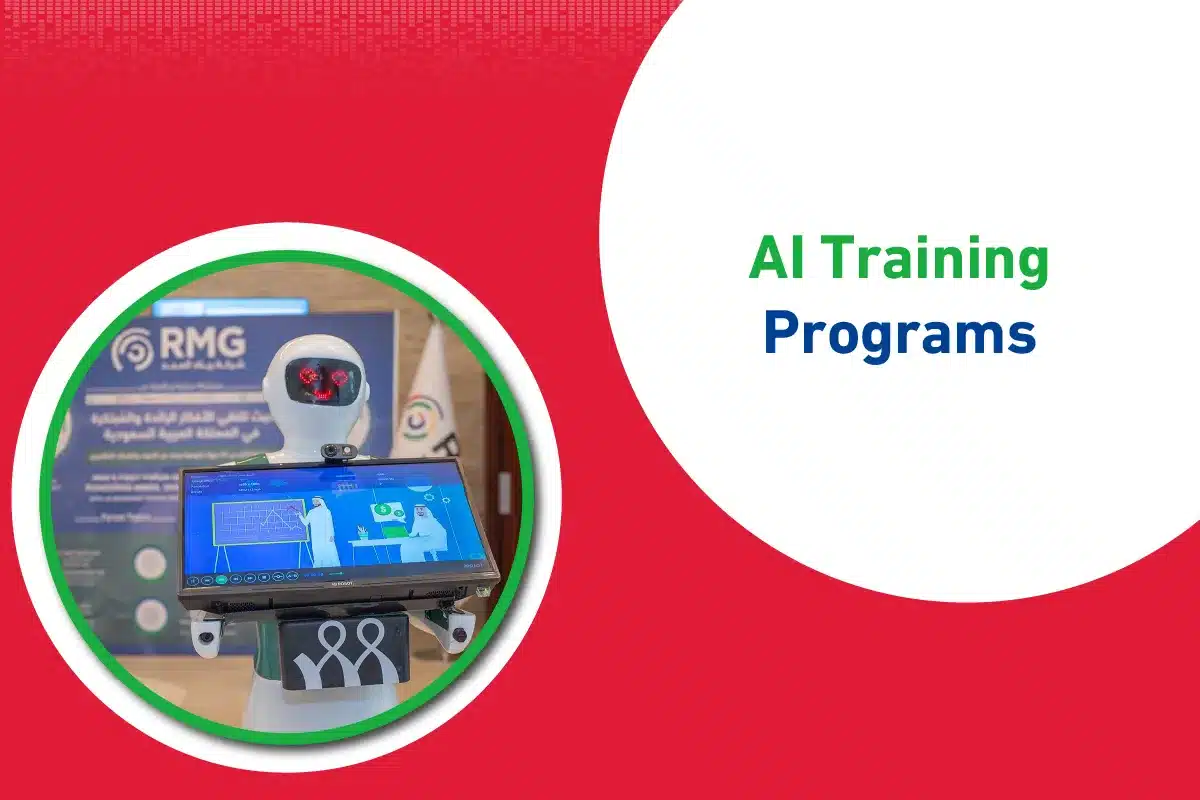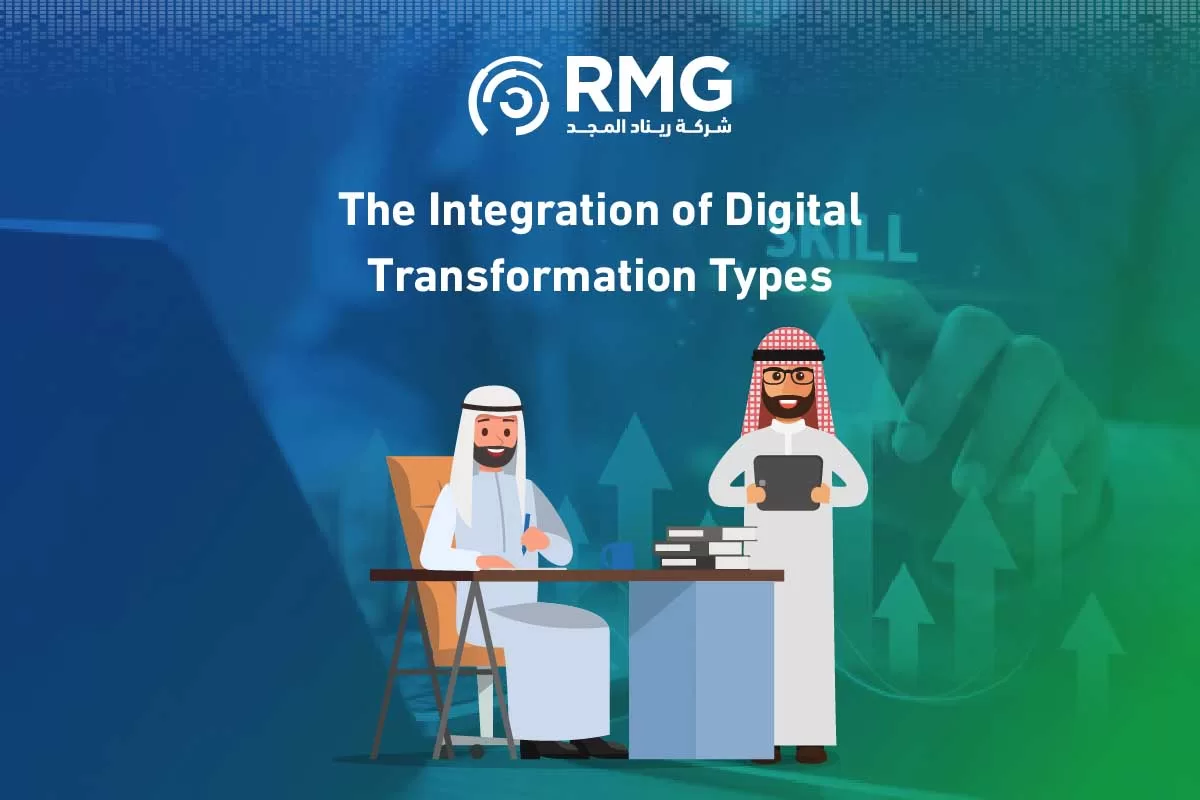Blog Body
Discover the different types of digital transformation and how they are shaping the future of business and institutions. Learn about transformations in customer experience, operations, industries, and critical sectors with RMG. Start your digital journey with confidence and efficiency.
In an era where technological change is accelerating at an unprecedented pace, digital transformation is no longer a luxury—it has become a critical necessity for organizations aiming to stay ahead of the competition and achieve sustainable growth.
Digital transformation is a comprehensive process of reengineering how organizations operate by integrating digital technologies into all aspects of business, from the business model to customer experience. However, it is not a one-size-fits-all journey; there are multiple types of digital transformation, each focusing on achieving specific goals to create new value and enhance efficiency and effectiveness.
Understanding these different types of digital transformation is the first step toward building a successful digital strategy tailored to your organization’s needs and future aspirations.
Key Types of Digital Transformation and Their Multiple Dimensions
Digital transformation is not merely about implementing new technology—it is a cultural and organizational change that requires a holistic view of all organizational components.
The types of digital transformation can be categorized based on the focus area of the transformation. Here are the most prominent types:
1. Digital Customer Experience Transformation
Enhancing customer experience is one of the main drivers of digital transformation for many organizations.
This type focuses on using digital technologies to better understand customer needs, deliver personalized services and products, and provide seamless, integrated interaction channels online and via mobile devices.
The goal is to build stronger customer relationships, boost satisfaction and loyalty, and ultimately drive revenue and business growth.
Applications include content personalization, AI-powered customer service, and virtual shopping experiences.
- Digital Process Transformation
This dimension focuses on reengineering internal processes through digital technologies to increase efficiency, reduce operational costs, and enhance responsiveness.
It involves automating routine tasks (RPA), using data analytics to optimize workflows, and implementing enterprise resource planning (ERP) systems and digital supply chains.
Process transformation enables organizations to become more agile and adapt quickly to changes.
- Digital Marketing & Sales Transformation
Digital technologies have radically transformed how organizations reach customers and sell products and services.
This type of transformation focuses on leveraging advanced digital marketing tools (SEO, SEM, social media, content marketing), analyzing customer data to understand behavior and personalize marketing campaigns, and implementing customer relationship management (CRM) solutions to empower sales teams and improve conversion rates.
- Digital Manufacturing Transformation
The manufacturing sector is undergoing a major shift with the advent of “Industry 4.0.”
This transformation focuses on integrating technologies such as the Industrial Internet of Things (IIoT), artificial intelligence, robotics, and 3D printing to enhance production line efficiency, enable predictive maintenance, increase production flexibility, and offer greater product customization.
The aim is to create “smart factories” capable of autonomous operation and continuous performance improvement through data analysis.
- Digital Supply Chain Transformation
Digitizing the supply chain aims to boost transparency, efficiency, and agility in managing the flow of goods and services from suppliers to end customers.
This involves using technologies like blockchain for product tracking, data analytics for demand forecasting and inventory management, and digital platforms to coordinate all supply chain participants.
The result is reduced costs, improved delivery times, and greater resilience to unexpected disruptions.
- Digital Finance Transformation
Also known as “FinTech,” digital finance transformation includes applications like digital banking, e-wallets, contactless payments, AI-based risk and fraud assessments, and blockchain technology for financial transactions.
The goal is to streamline financial services, increase accessibility, and deliver faster, safer, and more personalized financial experiences.
- Digital Education Transformation
Digital technologies have fundamentally changed the ways of teaching and learning.
This type of transformation focuses on using online learning platforms, virtual classrooms, interactive digital resources, and personalized learning pathways based on student performance.
It also involves digitizing administrative processes in educational institutions to increase efficiency and enhance the experiences of students and faculty.
- Digital Tourism & Hospitality Transformation
This sector heavily relies on providing unique and convenient experiences to customers.
Digital transformation here includes utilizing digital platforms for booking and trip planning, offering personalized services through customer data analysis, using mobile apps for hotel check-ins and check-outs, and employing technologies like virtual reality to offer virtual tours.
The goal is to attract more tourists and enhance their overall experience.
- Digital Government Transformation
The goal of digital transformation in the government sector is to deliver more efficient, transparent, and accessible services to citizens, residents, and businesses.
This includes launching e-government platforms, digitizing government transactions and procedures, using big data and AI for decision-making and smart city planning, and enhancing public engagement through digital channels.
It contributes to realizing national visions aimed at building smart, sustainable governments.
The Integration of Digital Transformation Types
It’s important to recognize that these types of digital transformation are not isolated—they are interconnected and interdependent.
For instance, improving customer experience often requires internal process transformation to support the new experience, while digitizing the supply chain directly impacts production and manufacturing operations.
Thus, successful digital transformation requires a comprehensive vision and an integrated strategy that addresses the most critical dimensions of the organization and ensures alignment across different initiatives.
RMG’s Role in Leading Digital Transformation
Amid the complexity of the digital transformation landscape and the diversity of transformation types, organizations need a trusted strategic partner with the expertise and knowledge to lead this journey successfully.
Renad Al Majd (RMG) is at the forefront of companies specializing in delivering integrated digital transformation solutions and services.
We don’t just provide technological solutions—we work hand-in-hand with our clients to understand their unique challenges and objectives, and to design customized digital transformation strategies that address the types of transformation most relevant to them.
Our consulting and implementation services span a wide range, including developing digital transformation strategies, reengineering processes with innovative technologies such as AI and automation, designing and developing digital platforms and applications that enhance customer and partner experiences, and building internal capabilities to lead innovation and adapt to change.
We believe that successful digital transformation creates real, sustainable value for organizations and their stakeholders.
Start Your Digital Transformation Journey Today
Whether you’re aiming to enhance customer experience, digitize your internal processes, or drive innovation within your sector, understanding the different types of digital transformation is your first step toward achieving your goals.
Don’t let your organization fall behind in the digital future.
Your strategic partner, Renad Al Majd (RMG), is ready to help you design and implement an effective digital transformation strategy tailored to your unique needs.
Contact us today for a consultation and start planning your organization’s digital future!




















